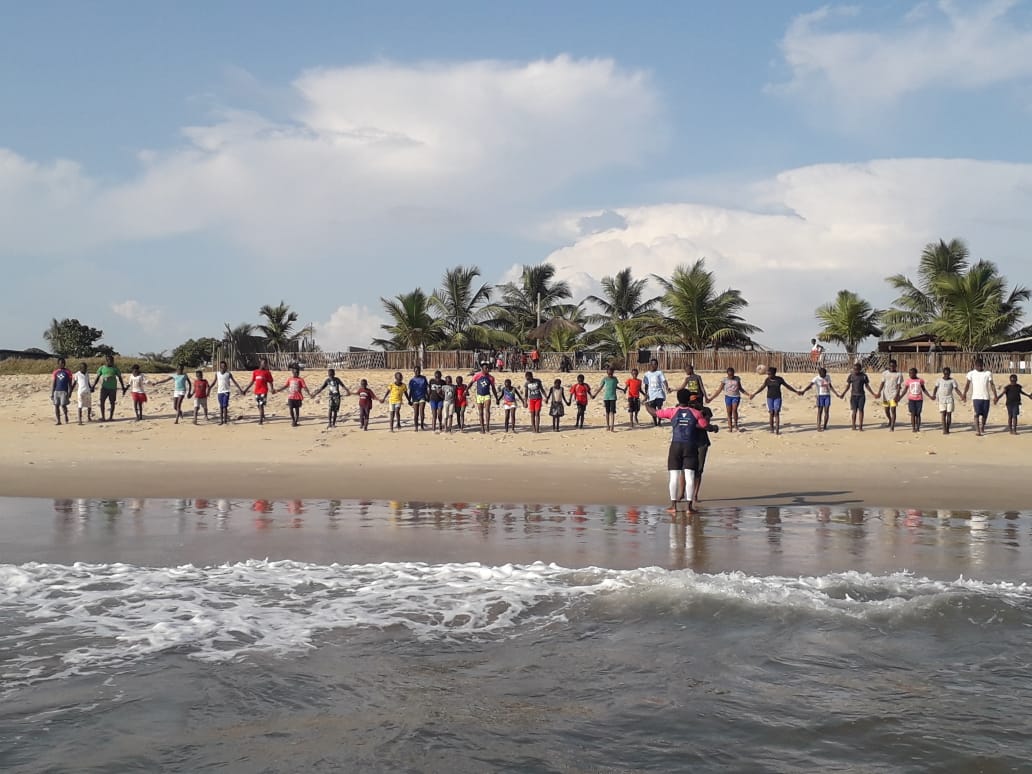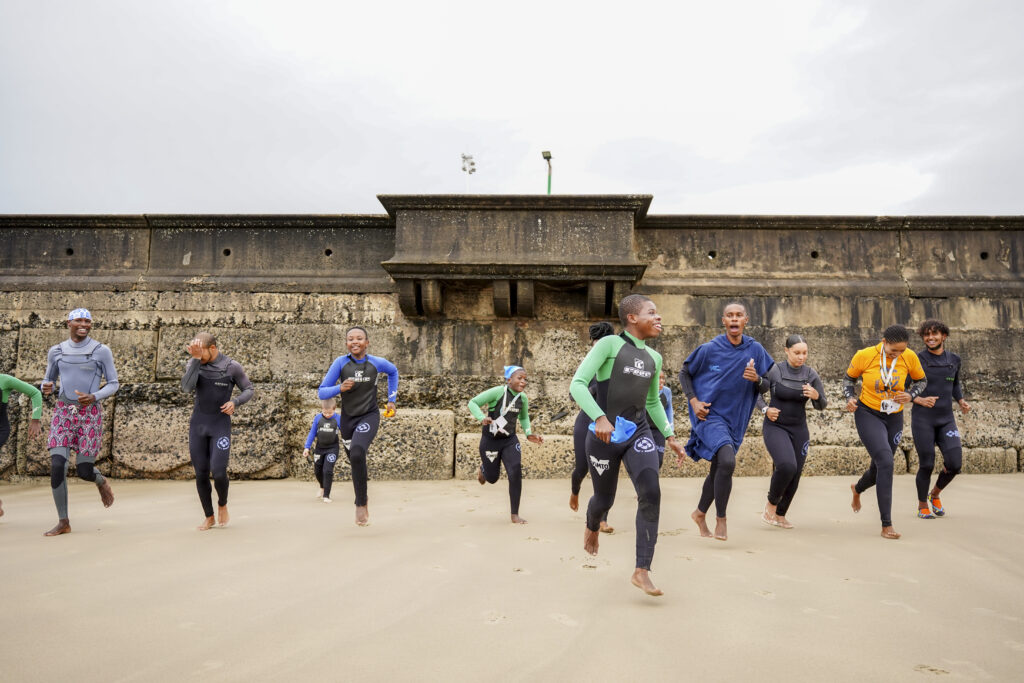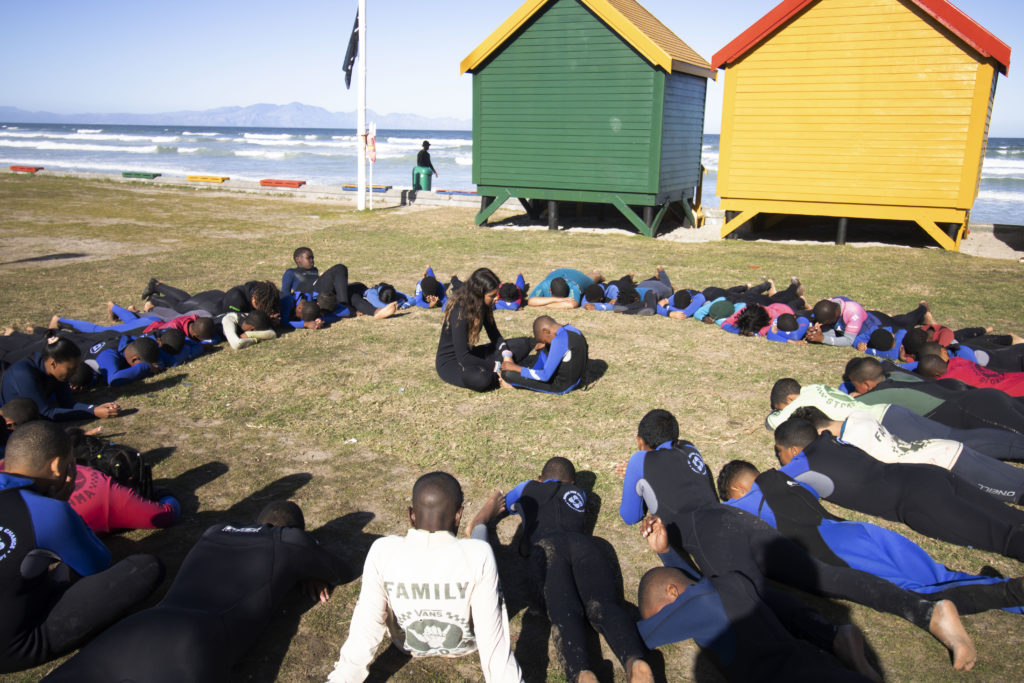The Wave Alliance

It started with a rag-tag surf club. Now, over a decade later, the idea that first took root in Cape Town’s Masiphumelele Township has spread around the world with 20 partners from 11 different countries and more yet to be added.
The Wave Alliance, founded by our friends at the South African charity Waves for Change, uses a combination of surfing and social therapy to provide support to vulnerable children – building up a wealth of evidence that supports the principles behind surf therapy. Below, W4C co-founder Tim Conibear tells their story.
I learned to surf when I was about 18. Growing up in Oxford, surfing and the sea always seemed far away, which indeed they were. Oxford is England’s most landlocked town. But surfing also felt different. I played a lot of sport when I was young, but surfing seemed less a sport and more a rite of passage. I’d encounter surfing in magazines and occasionally on the TV. Every year we’d head to Cornwall for a holiday and I’d watch the surfers bobbing at the backline. A tight, intimidating, impenetrable pack. Shy and very much the outsider, I’d stay on the beach and watch quietly. At 18 I finally mustered the courage to hire a foam board and catch a wave with the Harlyn Surf School. Now 39 and writing from my desk in Cape Town, where I co-founded and organisation called Waves for Change, I can’t imagine the last 21 years of my life without surfing. That wave changed everything.
Waves for Change uses the power of surfing to provide psycho-social support to vulnerable children in South Africa. The organisation grew out of a surf club that myself and co-founder Apish Tshetsha started in Masiphumelele Township, Apish’s home. Apish and I met when I first moved to Cape Town in 2009. On weekends we’d meet up on the pavement outside the bustling township and pile into a small truck I’d commandeered from a rental agency. We started as a little crew. Seven or eight of us. Teenagers mostly, looking for something to do. We’d make the 15 minute drive along the coast to Muizenberg Beach where we rode waves on borrowed boards and finished with a hot chocolate and pastry donated by the local cafes. It was enormous fun, getting to know people from different backgrounds and cultures. Learning one another’s language and sharing the joy of riding waves.
As the weeks turned to months and months to years, the surf club continued and the membership grew. As the membership grew, so did the complexity of the problems Apish and I were being asked to deal with. Life in South Africa is challenging. To an outsider, life in a South African township seemed impossible. Back breaking work, low wages, scarce food, high levels of crime, over-crowded schools, under-resourced clinics. No healthcare or insurance. No safety net save for the friends and the community around you. In this context, the importance of our little surf club become immediately obvious. Given the need and the overwhelming interest, Apish and I resolved to grow it.
We realised the essence of the programme lay in the relationship between Apish and the surfers, and that learning to swim and mastering the waves together created an environment where empathetic, trusting relationships formed quickly. Relationships that were sadly missing in the lives of most of the surfers. We developed a simple coaching manual that used the learn to surf experience to teach social and emotional skills, and began recruiting and training unemployed young adults from Cape Town’s townships to become community surf mentors; a new generation of surfers from communities formally excluded from what was then a very homogenous surfing culture.
In 2011 we opened a local beach centre at Muizenberg beach and divided the week into classes. Classes ran every day, with courses lasting 12 months. Starting in January and ending in December. In the mornings, groups of children who weren’t in education were referred to the centre. In the afternoons, groups of children referred by their school teachers for social and emotional challenges would attend. Alongside the programme we conducted research and found the programmes had a profound effect on the children’s self-regulation, interpersonal skills and ability to cope with change. As we refined our teaching and training model, and continued to refine our research, we were able to train more coaches and open more beach centres. Today, Waves for Change programmes run all along the South African coastline reaching almost 2,000 children per week referred from 45 high-risk coastal communities. The glue that binds the organisation are the amazing community coaches who deliver the Waves for Change programme each day.
As Waves for Change has established itself, we’ve been fortunate to partner with Development agencies such as UNICEF, USAID, Partners in Health and Ashoka. Through these agencies we’ve met some incredible organisations working in coastal communities in countries such as Liberia, Somalia, Sierra Leone and Kenya amongst many others. Countries with beautiful coastlines, fun surf and coastal communities with economic and social challenges similar to those we see in South Africa. Countries with coastal communities who have forged a living from the ocean for centuries, but where surfing remains a fringe sport.
In 2019, with the support of Comic Relief, we started sharing our teaching, training and research methodologies with these organisations and conducted face to face workshops in Cape Town. We shared everything we’d learnt from 10 years of Waves for Change work and co-designed pilot programmes which our friends and partners then tested. To overcome the barrier of equipment, we made sure all our partners had the equipment they needed to launch. After training in Cape Town, we set-up online calls and WhatsApp groups to mentor our partners through the tricky phases of programme delivery, impact measurement, report writing and advocacy for continued programme support. As I write in January 2021, we have supported 20 partners from 11 different countries. In July we will be hosting another training to induct 7 new partners from South and Central America to the network. We call this network ‘The Wave Alliance’. Our collective goal is to create an ocean for everyone.
This article originally appeared on Finisterre, as part of their wonderful support of an ocean for all.
We’ve been working with Finisterre for many years now. We share the same passion for the sea and the same belief that in the ocean we find ourselves and our community. We’re excited to partner with Finisterre to tell the story of the Wave Alliance and connect more and more people to the power of the ocean over the coming months and years. The more people we can introduce to the ocean, the better. We hope you’ll join us for the ride.
Stay tuned as we dive deeper into the story of the Wave Alliance over the coming months. The next instalment will be out in a few weeks and looks at the work of Alto Peru, a Wave Alliance partner working to help disadvantaged kids from the barrios of Lima.


